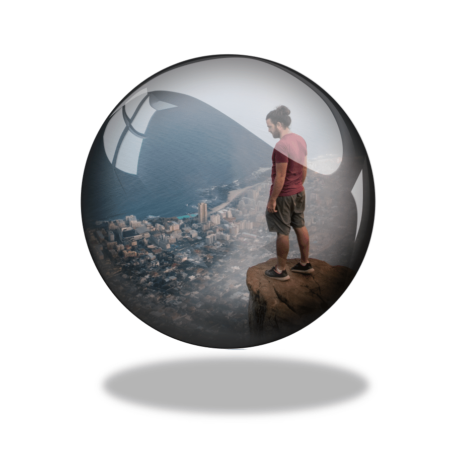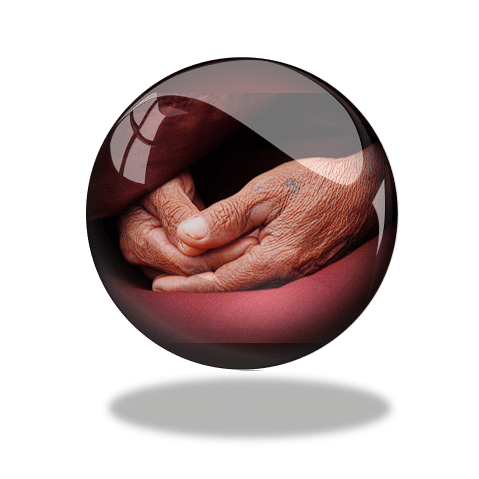Mental health issues challenge who we are – they question our identity. If we can help people better access the things that make them fully human, we can better equip them to have the answers they need when those questions get asked. This article is part of our series on mental health and stress resilience at work..
‘Having spirit’ is our best defence
 These things give us arguments to keep anxiety at bay, and to lift us away from depression. In this way, they give us a resilience to cope with more stressful situations than might be possible without them.
These things give us arguments to keep anxiety at bay, and to lift us away from depression. In this way, they give us a resilience to cope with more stressful situations than might be possible without them.Spirituality sets us apart
 less attention to those things that cannot be explained in those terms. As a result, we have abandoned the concept of ‘spirituality’ to more superstitious perspectives. And we have lost sight of its true potential to balance materialistic and rational dominance. Sadly it is no longer a term that can easily be used without prejudice or misunderstanding.
less attention to those things that cannot be explained in those terms. As a result, we have abandoned the concept of ‘spirituality’ to more superstitious perspectives. And we have lost sight of its true potential to balance materialistic and rational dominance. Sadly it is no longer a term that can easily be used without prejudice or misunderstanding.we are not machines – so don’t think like one
Business is reawakening to spirituality
 All of a sudden things like hope, love, loyalty, character, centredness, integrity, trust are back on the business agenda. And we are just about reaching the point where we can re-appropriate the term ‘spirituality’ to mean something which reflects the impact and potential of all of those things. Which is just as well, because if we were to attempt to tackle what is coming without them, we would all have serious mental health issues. Spirit is key to stress resilience at work.
All of a sudden things like hope, love, loyalty, character, centredness, integrity, trust are back on the business agenda. And we are just about reaching the point where we can re-appropriate the term ‘spirituality’ to mean something which reflects the impact and potential of all of those things. Which is just as well, because if we were to attempt to tackle what is coming without them, we would all have serious mental health issues. Spirit is key to stress resilience at work.spirituality is key to tackling the challenges we face
-
- Firstly, talk about it. Gradually rebuild their vocabulary to enable them to gain a better grasp of their spiritual side, and its importance to them in building stress resilience at work. Launch discussions on topics like: authenticity; vulnerability; mindfulness; diversity; creativity; story-telling; personal narrative; trust; spirit … And build their insight, their understanding, and their ability to articulate their feelings in this area. Most of all, bring it back centre stage so they know this is normal. They do not need to suppress it.
creativity is a spiritual act
- Secondly, introduce and build the role of creativity in your meetings. Creativity is a very spiritual act. Whether you express it in influencing images, writing, concepts or patterns of activity. Creativity changes our relationship with the way the world is and might be. It is about moving beyond the confines of our situation and tapping into things we do not fully understand. In doing so, it reshapes the world around us. And the joy that we feel in our spirit when that happens is a spiritual reaction to what we are doing – a connectedness with something bigger and more enduring than our physical selves.
- Thirdly, equip yourself and your people with a mindset of ‘adventure’. Adventure creates stress resilience at work by providing a valid alternative to a victim mindset in response to change.
Develop a mindset of adventure
- As a result, Jeb feels that: he is stuck; and suffering the consequences of bad decisions made elsewhere; the blame is unfair; mistakes are inevitable given the set up; nobody listens; his team-mates let him down; he wants to avoid the initiative; if his performance drops further he will be fired; and he just wants to make it through each day – all of which is totally true!
- While Aja: choses to stay; wants to learn from how she responds to the challenge; is curious to find how bad decisions might be reversed; empathises with the blame and with her team mates; wonders about options for self-help; sees the initiative as a way to fix mistakes; and to learn new skills; believes listening starts with her; knows they won’t fire her – and if they did, that will be a new experience; sees each day as a new opportunity.
it isn’t what happens to you, it is what you make of what happens to you
the future is an adventure, or a disaster – you choose – you literally choose!
Leading by adventure
an adventure into ourselves and our potential
Relevant Links:
Culture eats strategy for breakfast – but what sort of strategy are you feeding it?
Facilitating mental wellbeing – The power of adventure in keeping our minds fit & healthy.
Patterns of collaborative excellence – Rediscovering the lost wisdom of design.
Prescient emotional knowledge management – do you have what it takes?



 Probably the most helpful definition of spirituality I have encountered came from an aboriginal Australian, Adrian Tucker, who describes it in the words on the right.
Probably the most helpful definition of spirituality I have encountered came from an aboriginal Australian, Adrian Tucker, who describes it in the words on the right. It is a form of truth beyond the rational, one that we can find in a song, a poem, a painting, a beautiful sunrise, or a smile. It makes our heart leap, our spirit soar, and gives us a new sense of being fully alive. And it enables us to be our best. To live up to our potential. To bless and inspire others. And to change the World.
It is a form of truth beyond the rational, one that we can find in a song, a poem, a painting, a beautiful sunrise, or a smile. It makes our heart leap, our spirit soar, and gives us a new sense of being fully alive. And it enables us to be our best. To live up to our potential. To bless and inspire others. And to change the World. It is about moving beyond the confines of our situation and tapping into things we do not fully understand. In doing so, it reshapes the world around us.
It is about moving beyond the confines of our situation and tapping into things we do not fully understand. In doing so, it reshapes the world around us. Science can partially describe and interpret how this happens, but it neither defines or constrains what it might ultimately prove to be. Equally religion may allow us to glimpse more of its character, but it is still ‘seeing through a glass darkly’ and, at a purely rational level is limited to the vocabulary we have available to us. But when we tap into this power, our own spirit experiences something beyond the language that we have to describe it, and we are uplifted and elevated by the experience.
Science can partially describe and interpret how this happens, but it neither defines or constrains what it might ultimately prove to be. Equally religion may allow us to glimpse more of its character, but it is still ‘seeing through a glass darkly’ and, at a purely rational level is limited to the vocabulary we have available to us. But when we tap into this power, our own spirit experiences something beyond the language that we have to describe it, and we are uplifted and elevated by the experience. For me, as a Christian, that experience I interpret as a connection with God. But the God I believe in fights (and dies) for free will, and therefore I vehemently uphold that everyone should be allowed to arrive at their own interpretation.
For me, as a Christian, that experience I interpret as a connection with God. But the God I believe in fights (and dies) for free will, and therefore I vehemently uphold that everyone should be allowed to arrive at their own interpretation.
 Why Pray?
Why Pray?